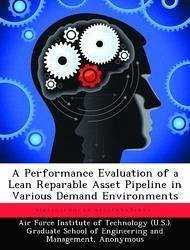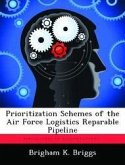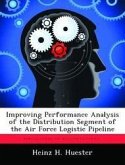Lean production and logistics processes were developed in the commercial sector to reduce total system costs of production while simultaneously providing high levels of customer service, increased productivity, and increased worker utilization. In 1993, the Air Force instituted the Lean Logistics program, which successfully implemented some commercial lean principles, enabling a reduction in the total reparable asset material requirement for the Air Force reparable asset pipeline. The Air Force is attempting to further implement lean production principles into depot repair in hopes of further enhancing reparable asset pipeline cost and customer service performance. However, the failure of reparable assets, which determines demand for Air Force depots can be extremely erratic and difficult to predict. A primary criticism of lean systems is their vulnerability in volatile demand environments. Therefore, the implementation of a full-scale lean approach to depot repair may not be conducive to operational success. The purpose of this research is evaluate whether the Air Force reparable pipeline operating under lean production and logistics principles can effectively support operational requirements in various demand environments. In an attempt to answer the research objective, multiple Arena simulation models of a "lean" reparable asset pipeline operating under various conditions were developed. A full factorial experimental design was employed and multivariate analysis of variance (MANOVA) was utilized to assess the effects of differing levels of demand variability, base and depot supply levels, and the use of premium transportation on cost and stockage effectiveness response variables.
Bitte wählen Sie Ihr Anliegen aus.
Rechnungen
Retourenschein anfordern
Bestellstatus
Storno








